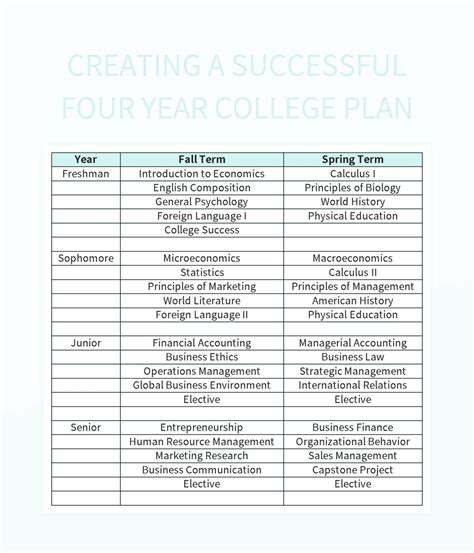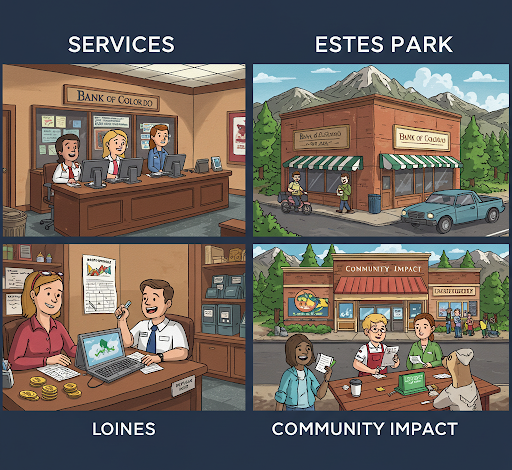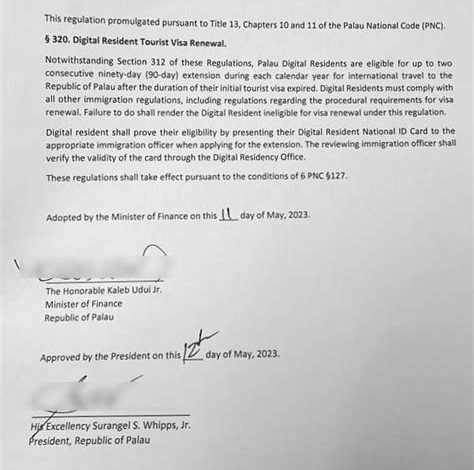Embarking on a four-year college journey can be both an exciting and daunting endeavor. To help you navigate this academic odyssey successfully, we present a comprehensive 4-year college plan that empowers you to thrive in the classroom and beyond.

Year 1: Laying the Foundation
Coursework and Academics
- Enroll in core courses such as English, Math, Science, and Social Studies.
- Seek guidance from academic advisors to craft a course schedule that aligns with your interests and career aspirations.
- Join study groups or seek tutoring to enhance understanding and improve grades.
- Immerse yourself in extracurricular activities to explore passions, develop leadership skills, and connect with fellow students.
Personal Development
- Establish healthy study habits and create a dedicated workspace.
- Develop time management strategies to balance academic responsibilities with other commitments.
- Seek opportunities for internships or research experiences to gain practical skills and build connections.
Year 2: Exploring Majors and Opportunities
Coursework and Academics
- Explore different majors and attend career fairs to identify potential career paths.
- Declare a major that aligns with your interests and future goals.
- Begin taking upper-level courses in your chosen major.
- Participate in undergraduate research or independent study projects to deepen your knowledge and skills.
Personal Development
- Refine study habits and time management techniques.
- Network with professors, professionals in your field, and alumni to build valuable connections.
- Engage in community service or volunteer activities to enhance social responsibility and make a difference.
Year 3: Refining Skills and Goals
Coursework and Academics
- Focus on coursework that prepares you for your chosen career.
- Seek opportunities to gain hands-on experience through internships or research projects.
- Develop a strong writing portfolio or research proposal.
- Begin preparing for graduate school or job applications.
Personal Development
- Build a strong resume and LinkedIn profile.
- Practice interviewing skills and research potential employers.
- Seek guidance from career services to explore job opportunities and negotiate salaries.
Year 4: Culminating the Journey
Coursework and Academics
- Complete all remaining degree requirements.
- Work on a capstone project or thesis to demonstrate your expertise.
- Participate in presentations or conferences to showcase your research or creative work.
- Graduate with a degree that opens doors to your desired career or further education.
Personal Development
- Reflect on your college experience and identify areas for growth.
- Attend career fairs and networking events to secure a job or graduate school admission.
- Seek feedback from professors, mentors, and family members to enhance your professional and personal capabilities.
Why Planning Matters
A well-structured 4-year college plan provides numerous benefits:
- Clarity and Direction: It helps you define your goals, identify your strengths, and map out a path to success.
- Improved Performance: By knowing what courses to take and when, you can optimize your schedule and maximize learning outcomes.
- Reduced Stress: Planning ahead reduces uncertainty and anxiety by providing a roadmap for your academic journey.
- Increased Opportunities: Early exploration and planning can lead to internships, research experiences, and career connections that enhance your competitiveness.
- Graduate School or Career Success: A well-planned undergraduate experience prepares you for the competitive job market or further education.
Tips and Tricks
- Meet with Academic Advisors Regularly: Utilize their guidance to plan your course schedule, explore majors, and identify opportunities.
- Utilize Campus Resources: Take advantage of tutoring, writing centers, and career services to enhance your academic and professional development.
- Explore Extracurricular Activities: Engage in clubs, sports, or volunteerism to develop leadership skills, connect with others, and enhance your resume.
- Build a Network: Attend career fairs, connect with professors, and seek internships to build valuable relationships for future opportunities.
- Stay Organized: Use a planner, create to-do lists, and utilize digital tools to manage coursework and appointments.
Four Useful Tables
| Year | Coursework | Extracurricular Activities | Personal Development |
|---|---|---|---|
| 1 | Core Courses | Explore Clubs and Sports | Establish Healthy Habits |
| 2 | Explore Majors | Join Study Groups | Network with Professionals |
| 3 | Focus on Major | Gain Hands-on Experience | Build Resume and LinkedIn |
| 4 | Complete Degree | Work on Capstone Project | Seek Job or Graduate School Admission |
| Type of Activity | Time Commitment | Benefits |
|---|---|---|
| Tutoring | 1-2 hours per week | Improved understanding, higher grades |
| Research Project | 5-10 hours per week | Hands-on experience, publication opportunities |
| Internship | 10-20 hours per week | Practical skills, career connections |
| Community Service | 2-4 hours per week | Social responsibility, enhanced resume |
| Resource | Description | Benefits |
|---|---|---|
| Academic Advisors | Provide guidance on course selection, majors, and opportunities | Optimize academic journey |
| Career Services | Offer career counseling, resume building, and networking events | Prepare for job search or graduate school |
| Writing Center | Assist with writing assignments, grammar, and style | Improve writing skills |
| Student Clubs and Organizations | Offer opportunities for leadership, social engagement, and networking | Enhance personal development |
| Planning Timeframe | Task | Benefits |
|---|---|---|
| 6-12 months Prior to College | Explore Majors and Interests | Identify potential career paths |
| First Semester of Freshman Year | Create 4-Year Plan with Advisor | Set academic and personal goals |
| Each Semester | Review and Adjust Plan | Track progress and make necessary changes |
| Senior Year | Prepare for Graduation and Job Search | Secure a job or graduate school admission |











